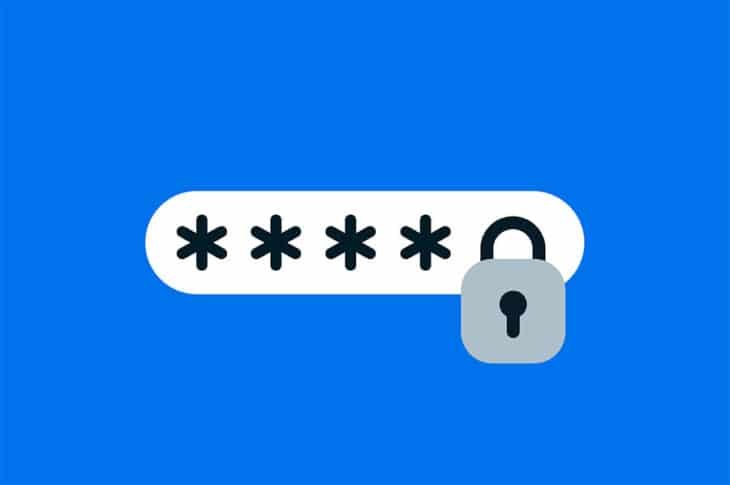There are a variety of reasons why we are all using passwords. They safeguard our computers, phones, money, and even gaming consoles. While we believe we are adequately secured, a password is frequently the only thing that keeps our sensitive data safe. As a result, it is crucial to take all necessary measures to protect one’s data from hackers and cybercriminals and ensure that password security is strong.
According to how secure a password is, hackers may invest varied amounts of time attempting to break them. A simple password could be broken in seconds, but a complex password might take thousands of years to break. In this post, we’ll review a few crucial aspects of password management.
Why Is Password Security Needed?
Passwords continue to be a successful method for identity-based authentication mechanisms of digital properties when convenience, security advantages, and cost for usage and maintenance are considered. The typical user has more credentials than ever before. Password security systems are employed to safeguard data, authenticate, and create an identity to access customised functionality and user login. Cybercriminals often utilise stolen information to spread malware. As a result, it is critical to implement password security best practices, including multi-factor verification.
How Does Password Security Work?
The validator programme, webpage, or account prompts the user, the claimant, to enter several characters that fit those recorded with the validator. The validator verifies the input term against its list of suitable passwords before granting access to confirm that the term and user ID match.
What Are the Most Important Tips for Keeping Your Passwords Secure and Strong?
Passwords are shared among staff. According to a poll, 49% of IT security professionals and 51% of staff exchange credentials with colleagues to access corporate accounts. Publishing credentials implies that the passwords are no longer under your organisation’s control. Control is essential for ensuring security. Verify that your security rules and procedures state that employees cannot disclose passwords. Furthermore, all staff should be educated on not disclosing passwords.
Employ Distinct Passwords for Various Accounts
Workers can have a lot of passwords to recollect; as previously mentioned, 60% of workers confess that they utilise the same password for several accounts. Provide staff with resources to prevent them from employing identical passwords. These solutions might include a password manager and Single Sign On (SSO) among connected accounts.
Make Use of a Password Manager
Even individuals who have fantastic memories would need help recalling several passwords. To alleviate this burden, your company may provide employees with a password manager. A password manager is a digital vault that saves, protects, and displays a password whenever a user signs in, eliminating the need for the client to know the password.
Do Not Keep Passwords on Your Desk
Writing credentials or passwords on paper is a terrible routine because they’re potentially vulnerable, particularly in the workplace. Any passing individual may steal and utilise the password to log into a specific owner’s account. Moreover, an employee who uses the same password for multiple sites may expose various versions.
Never Give Your Password Out
Ensure that staff are aware of how social engineering operates. Employ security awareness classes to highlight how fraudsters manipulate people into disclosing sensitive information, such as passwords.
Making Passwords Difficult to Guess
The most often-used passcode is 123456. This simplifies the task of a cybercriminal. Imposing the use of difficult-to-guess passwords improves password security. Establish a password policy that promotes the use of more complicated passwords. The National Institute of Standards and Technology (NIST) in the United States publishes monthly updates on the most stringent password regulations.
When in Doubt, Modify Your Passwords
According to security standards, staff must update their passwords when they suspect they have been phished. Required password changes each X weeks or months, however, can frequently result in poor password management. When users are compelled to change their passwords, they tend to adopt less secure new passwords that include a number at the conclusion.
Passwords Should Not Be Lost Due to Unprotected Connections
When someone logs into an account using an unprotected internet service, their password can be stolen. When individuals utilise public network connectivity, this popular standard is employed to steal information, such as passwords. When your employees work remotely and have access to the public world wide web, ensure they connect exclusively through a secure system.
Inform Users of the Risks of Dictionary Attacks
Urge people not to create passwords using popular terms. Sadly, users prefer to use well-known terms as passwords; this feature is exploited in dictionary attacks, in which malicious programmes attempt to gain access to an account by using well-known phrases and passwords. With security awareness classes, you can educate people about password-hacking strategies like these and others.
How Secure Is Password Security?
Password security, if utilised correctly, may be pretty successful and is essential in multi-factor verification. However, organisations’ inattentive user behaviour and inadequate password security may lead to devastating security vulnerabilities. The original password systems believed that users would remember their passwords, resulting in a safe method of password protection.
On the other hand, passwords have multiplied in both personal and professional lives, becoming more sophisticated. People have an excessive number of passwords to memorise and frequently repeat their passwords. Hackers are aware of these flaws and employ an increasing number of tactics to acquire and guess credentials, including phishing and spoofing emails. They may even buy stolen credentials on the internet.
In Summary
Phishing attacks may exploit passwords. According to studies regarding the efficacy of phishing, 32% of workers will click on a phishing link. Human mistakes, including password exchange and weak passwords, account for 95% of cyber intrusions. Enhancing password security is a crucial technique for a company to improve its defence capabilities. As a result, prioritise secure password procedures to raise your organisation’s risk level swiftly.







